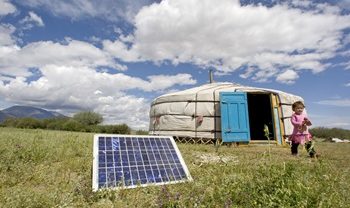COP24 was charged with completing work on the Paris Agreement Work Programme to operationalize the 2015 treaty. The outcome, the so-called Katowice Climate Package, includes decisions on nearly all of the issues mandated.
The ambition levels and results of the various agreed elements can be discussed, but there is now a first version of what has been called the Paris Agreement “Rulebook”.
Looking at the negotiations leading up to the meeting in Katowice, it was clear that there were many unresolved issues and therefore a lot of work to be done, if an agreement was to be reached.
That also meant, that it was relatively clear from the beginning, that this COP would not result in a ground-breaking deal, satisfying all the different pressing needs in the effort to meet the political goal in the Paris Agreement.
Many parts of the rulebook highlights the need for capacity building and guidance development, especially on new transparency requirements and the underlying institutional frameworks required to make that happen.
Need for action
A large part of UNEP DTU Partnership’s engagement at the COP is focused on sharing our work, meeting the countries that we work with or that could benefit from our work in the future and in this way inspiring new action.
As has been the case for the past nine years, UN Environment and UNEP DTU Partnership released the Emissions Gap Report in the week leading up to the COP, informing negotiators, policy makers and the broader public about the latest status on the national efforts to reach the global climate goals.
The Gap report, assessing climate action and contributions, has a clear message: We need to triple our collective global ambition to reach the Paris Agreement target of limiting the rise in temperatures to 2 degrees. If we want to stay below 1,5 degrees, ambitions need to be five times higher.
This message was received and repeated at COP24, where three out of the five main speakers at the opening ceremony directly referenced the report and its findings.
A rulebook for transparent climate action
The main issue left unresolved at this years COP relate to the use of cooperative approaches and the sustainable development mechanism, which was pushed to the next session.
While it can be considered a setback that agreeing on a deal about market mechanisms was pushed until next COP in 2019 in Chile, the focus on transparency in Poland yielded important progress.
The agreed enhanced transparency framework, together with the global stocktake, is set to deliver detailed guidance on countries’ reporting and review obligations.
Approving modalities, procedures and guidelines for the transparency framework, essentially a “rulebook” for transparency in climate actions, is an important step towards uniform tracking and monitoring of global climate action. It will also play a key role in improving and encouraging future action.
It is also a process in which UNEP DTU Partnership has a unique role. As a partner in both the Initiative for Climate Action Transparency (ICAT) and the Capacity Building Initiative for Transparency (CBIT), UNEP DTU Partnership in close collaboration with UN Environment will continue and expand the work with developing countries around the world to help them implement the new guidelines.
This work on capacity building will be supported by a series of publications in 2019, the first to focus on understanding the technicalities and methodologies behind the modalities, procedures and guidelines agreed in COP24 decisions regarding transparency, and what they entail for countries that have to report in a few years.
The importance of technology
Technology’s role in both climate change mitigation and adaptation cannot be overstated, especially seen from the perspective of developing countries. The negotiations on the Technology Framework at COP24 in general were conducted in a positive atmosphere that reflected this importance.
It also reflected the increasing attention on Technology Need Assessments from major international climate funding institutions such as the Green Climate Fund and the Global Environment Facility.
Through GEF funded Technology Needs Assessment (TNA) programme, which UNEP DTU Partnership implements for UN Environment, developing countries assess their needs in terms of climate mitigation and adaptation, develop priorities and examine barriers and enablers for key policies and technologies.
The Technology Framework established in the Paris Agreement specifically mentions the TNA programme for technology implementation and the importance of integrating the TNA process in NDCs, something that UNEP DTU Partnership already works specifically to facilitate.
This year saw the launch of the third round of TNAs with 23 developing countries, mainly least developed countries and small island developing states, joining the process, adding to the more than 50 that has already completed a TNA facilitated by UNEP DTU Partnership.
During the two weeks’ climate negotiations UNEP DTU Partnership also organised and participated in several events focused on the TNA process, technology and gender and sharing case stories of TNA work from Armenia and Uganda.
Providing the tools for global climate action
The meeting in Katowice also saw new funding being pledged to both the Green Climate Fund, the Adaptation Fund as well as a World Bank climate investment programme and others.
Despite these positive trends, there was a perceived lack of progress on the adaptation side of the negotiations.
Independently of the COP process, work is now being done on how to assess and accelerate progress on adaptation efforts. One significant initiative launched just before the COP is a Global Commission on Adaptation, aimed at enhancing the political visibility of adapting to climate change. The Commission will also focus on solutions, catalysing the global adaptation movement and accelerating action. It will be overseen by former UN Secretary-General Ban Ki-moon, Bill & Melinda Gates Foundation co-chair Bill Gates and World Bank CEO Kristalina Georgieva.
UNEP DTU Partnership will be involved in the preparation of background document for the Commission, which is planning to release its first report for the high level UN Climate Change Summit in September 2019.
The effort to limit effects of climate change is intrinsically linked to overall sustainable development. Not only is climate action part of the SDG agenda as goal 13, but many if not all climate actions can be said to have positive impact on one or more other SDGs.
Measuring the sustainable development impact of climate action is increasingly important, but also a difficult task, that requires development of research and practical tools. UNEP DTU is involved in several activities to contribute tools and methods to facilitate better assessment of sustainability impacts and transformational opportunities.
UNEP DTU Partnership will in this context in April be hosting a Global Symposium on Strengthening the Synergies between the Paris Agreement and the 2030 Agenda for Sustainable Development for UN DESA and the UNFCCC Secretariat. Information on this event will be available shortly.


